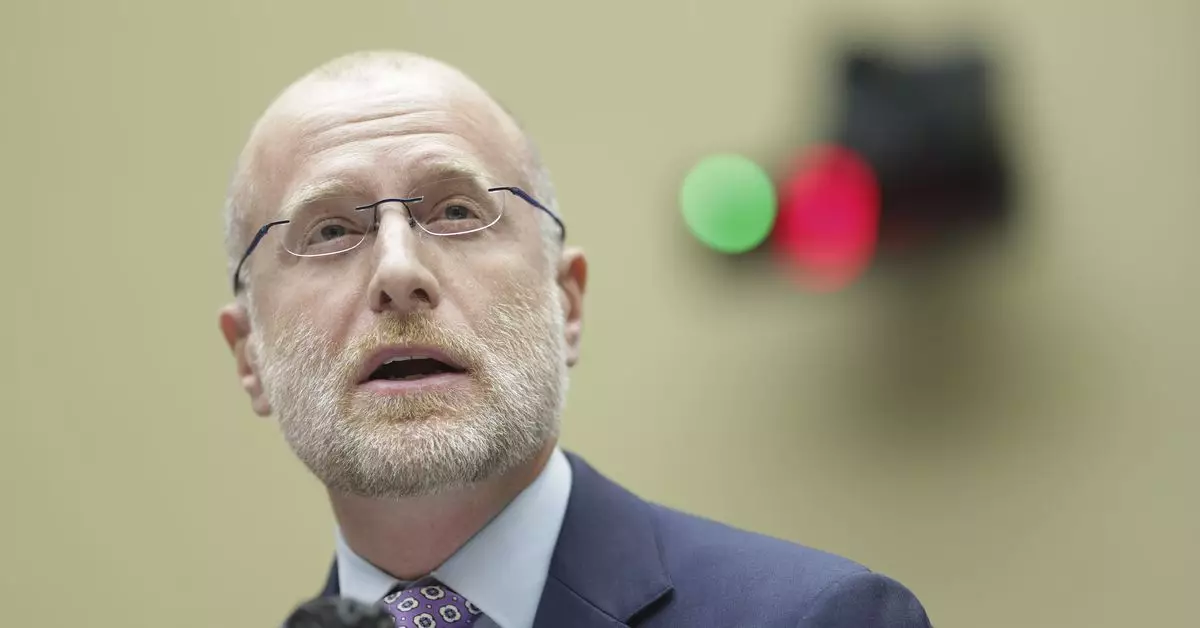The Federal Communications Commission (FCC) plays a pivotal role in overseeing and regulating the telecommunications landscape in the United States. Established with the purpose of promoting communication technologies in the public interest, the FCC finds itself at the crossroads of free expression, technology, and regulatory frameworks. The impending appointment of Brendan Carr as chairman, as indicated by President-elect Donald Trump, signals a potential shift towards a more aggressive approach in regulating speech across various platforms, particularly those seen as vehicles for conservative viewpoints.
Brendan Carr has been a familiar face at the FCC since his appointment as commissioner in 2017. During his tenure, he has not shied away from controversial stances that advocate for an adjustment in the balance of power between government regulations and private sector freedom, particularly in the realm of social media. Carr’s involvement with Project 2025 reflects his commitment to redefining the regulatory landscape, aiming to impose restrictions that would ensure conservative voices are not drowned out in the digital discourse.
Carr’s advocacy includes significant proposals that threaten to alter the longstanding Section 230 of the Communications Decency Act, which has not only enabled various platforms to cultivate user-generated content but has also shielded them from complete liability for that content. By suggesting limitations to this legal protection, Carr aims to hold social media firms accountable for their moderation practices, particularly scrutinizing cases where he perceives bias against conservative viewpoints.
The implications of Carr’s regulatory philosophy could be profound. His suggestions to penalize tech companies for blocking or prioritizing certain content could instigate widespread changes in how these platforms function. If such regulations are actualized, platforms might be forced into a reactive mode, modifying their content moderation processes to avoid government intervention. This would not only perturb the operational philosophies of tech giants but could also reshape user experience on these platforms.
Moreover, Carr’s recent actions, including vocal threats against media outlets such as NBC over perceived anti-conservative sentiments, raise alarming questions regarding the politicization of content regulation. The notion of a governmental body leveraging its regulatory power against media companies for political reasons is a controversial departure from the traditional separation between media independence and governmental influence.
Navigating the challenges of speech regulation in the internet age is fraught with complexity. Regulatory attempts to manage or redistribute speech privileges can lead to situations where the line between upholding free speech and enforcing a preferred narrative blurs. Critics argue that Carr’s approach could chill free expression, particularly if content creators fear repercussions based on their expressed viewpoints.
As Carr’s nomination progresses through the political landscape, various stakeholders—including civil liberty organizations, tech companies, and the general public—will undoubtedly engage in rigorous debate regarding the future of content regulation. Because of the powerful implications of his leadership, the examination of Carr’s policies and the responses they provoke may play a crucial role in determining the extent to which free speech and regulatory authority will coexist in the United States.
Brendan Carr’s vision for the FCC heralds a contentious phase in the regulation of communication platforms, with potential ramifications that extend far beyond mere policy changes, impacting the very fabric of public discourse.

